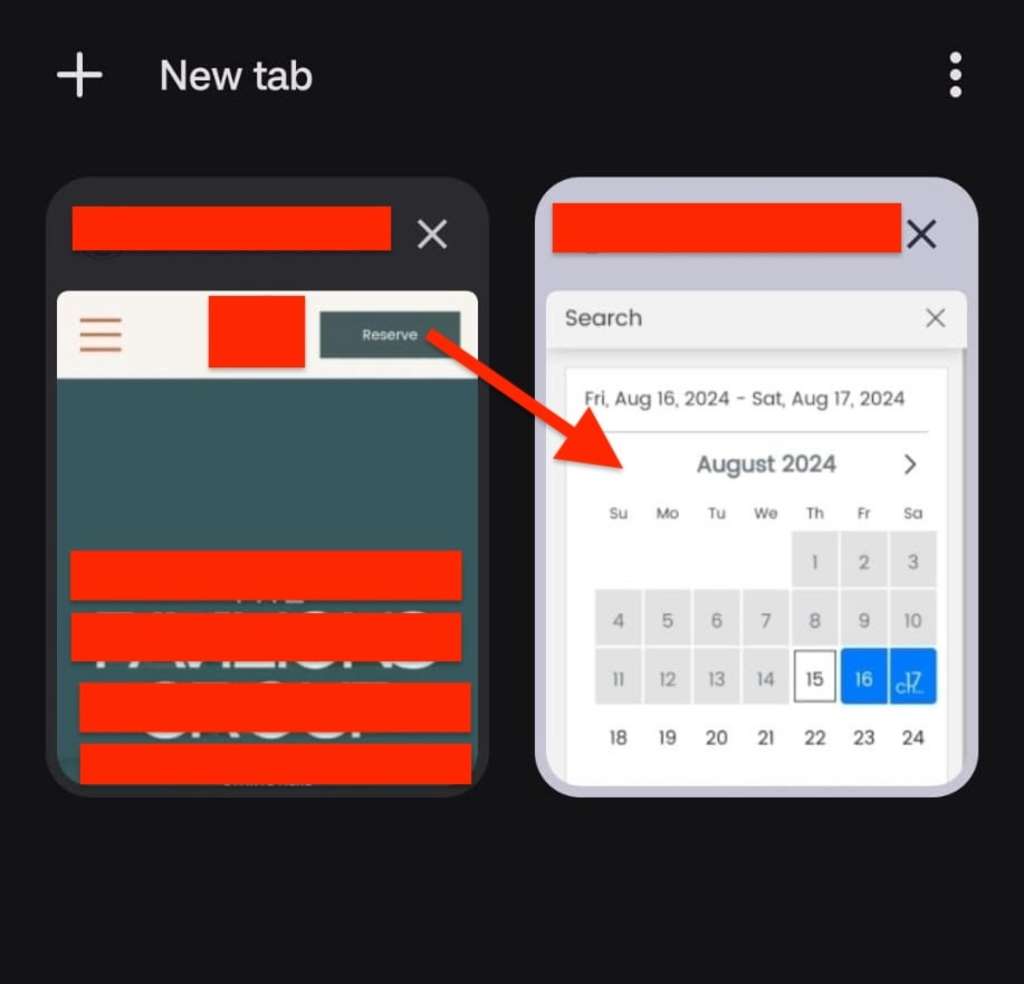Let’s get this clear right from the start: integrating the booking engine into your hotel’s website isn’t just about keeping everything pretty – it’s about removing all the nonsense that slows your guests down. It’s a step towards increasing conversion rates and removing any friction that hinders the user experience.
And if that sounds like good business sense to you, then you should definitely take to heart the numerous studies and literature that consistently point out that integrating IBE directly into the website can increase conversion rates by 25-40% (source: AZDS Interactive Group). ONYX Hospitality Group saw a 40% increase in conversion rates after integrating SynXis into its website. Similarly, TFE Hotels saw a 21% increase in conversion rates after redesigning its websites with integrated booking engines, while Loews Hotels & Co saw a 30% increase in direct bookings. The list goes on and on.
Exploring these case studies may seem overkill, as this concept is a no-brainer. When users are ready to book, you want to keep them on the same website, right?
This should have been standard from the beginning, but is this the current situation in our industry? Absolutely not!
Currently, on most hotel websites, users click on the “BOOK”When you click the button, you’re taken to a different URL, often with a completely different UI, and it feels like you’re actually leaving the site (and guess what? You are!). This is a significant UX mistake that greatly impacts conversion rates.
The problem is even worse on mobile devices, where the majority of traffic comes from. Opening the booking engine in a new tab (which is always the case for sites with non-integrated e-commerce) breaks the flow and confuses users, leading to higher abandonment rates.
Ever thought about it? Users now have two tabs open and no idea why they are now on a website called synxis.com while they are in the “Hotel whatever” website just now. Again, we’re industry professionals (well, most of us anyway…), but we’re not travelers. You shouldn’t have to know industry jargon just to book a room, right?


And if you don’t trust my opinion, trust the data: studies show that mobile users are 40% more likely to abandon a transaction when faced with such an disruptive experience.
In addition, there is the issue of brand perception: as mentioned above, most travelers are not familiar with SynXis SimpleBooking or other booking engine providers. For the average user, going from brand.com to synxis.com is like adding items to an Amazon shopping cart and then being redirected to eBay to complete the purchase. This not only confuses users, but also reduces trust and brand awareness.
For the average user, going from brand.com to synxis.com is like adding items to an Amazon shopping cart and then being redirected to eBay to complete the purchase.
To quote Lethal Weapon: I’m probably too old for thatbut with 25 years of experience in this industry (half of which I’ve spent building websites for top hotel brands) I’ve seen little to no difference in conversion rates between a $100,000 website and a $50 WordPress template. The real impact on conversion rates is having a well-integrated booking engine. If it’s not integrated into the website, your fancy design won’t make a difference.
This is common knowledge in our industry: hotel websites act as bottom-of-the-funnel marketing channels, not top-of-the-funnel ones. They do NOT generate traffic. They simply CONVERT existing traffic into bookings.
Hotel websites act as bottom-of-the-funnel marketing channels, not top-of-the-funnel. They do NOT generate traffic. They simply CONVERT existing traffic into bookings.
It’s well known (everyone in the industry knows it), but also esoteric (web agencies try to make it seem like websites can increase brand awareness – spoiler: they don’t).
When users land on an official hotel website (unless they’re mega brands like Marriott International or Hilton), they already know everything they need to know about the hotel. Most publications show that over 95% of users who visit an official website started their journey somewhere else (usually an OTA or review site) and only came to the official site to find a better price or a better user experience (usually both).
There’s a lot of ego and vanity involved in building hotel websites, and while I understand that, you can probably get better conversion rates from a 1990s website if you make the booking experience dead simple. Think about it: this is why metasearch advertising has such a high ROI – users are interacting with ONLY ONE website (that of the booking engine) and have no contact with the .com brand whatsoever.
If you have a website from the 1990s, you can probably get better conversion rates by making the booking experience as easy as pie.
I don’t mean to diminish the work of web designers, but after building five websites a week for nearly ten years (if you do the math, that’s 2,400 hotel websites), I’ve had the opportunity to do extensive A/B testing and have come to the same conclusion that many industry experts might not openly admit: conversion is all about the booking engine UX, the integrated experience, and offering a better price (why else would anyone book on an official website?).
Why am I even writing this? Because it bothers me that this topic is rarely (if ever) discussed.
Is there a secret Masonic lobby in the hotel web design agencies? If so, I was never invited there.
Call me, web design Illuminati, please (here is my number: +39 375 634 34 56).
Simone Puerto
Travel singularity

